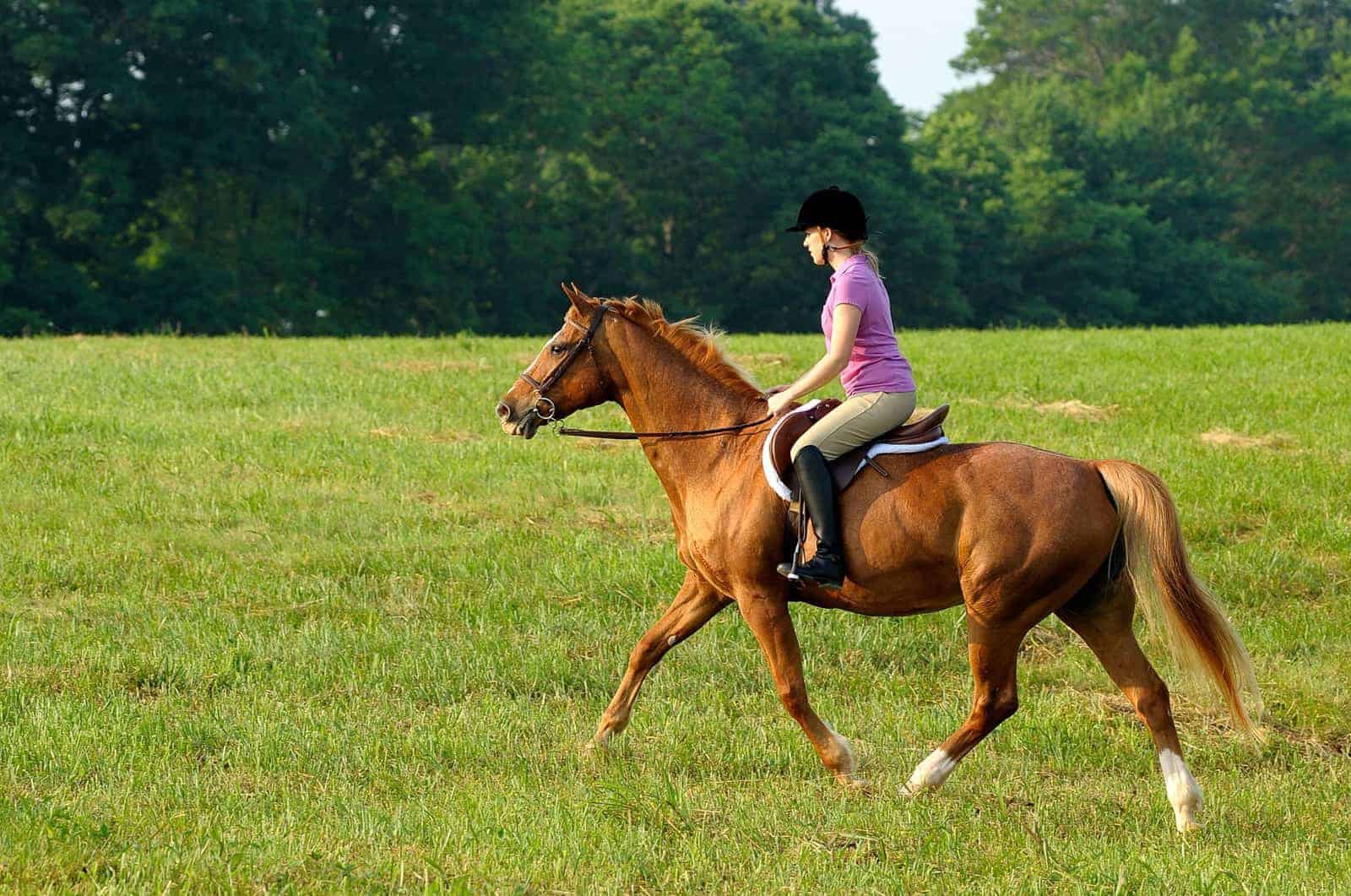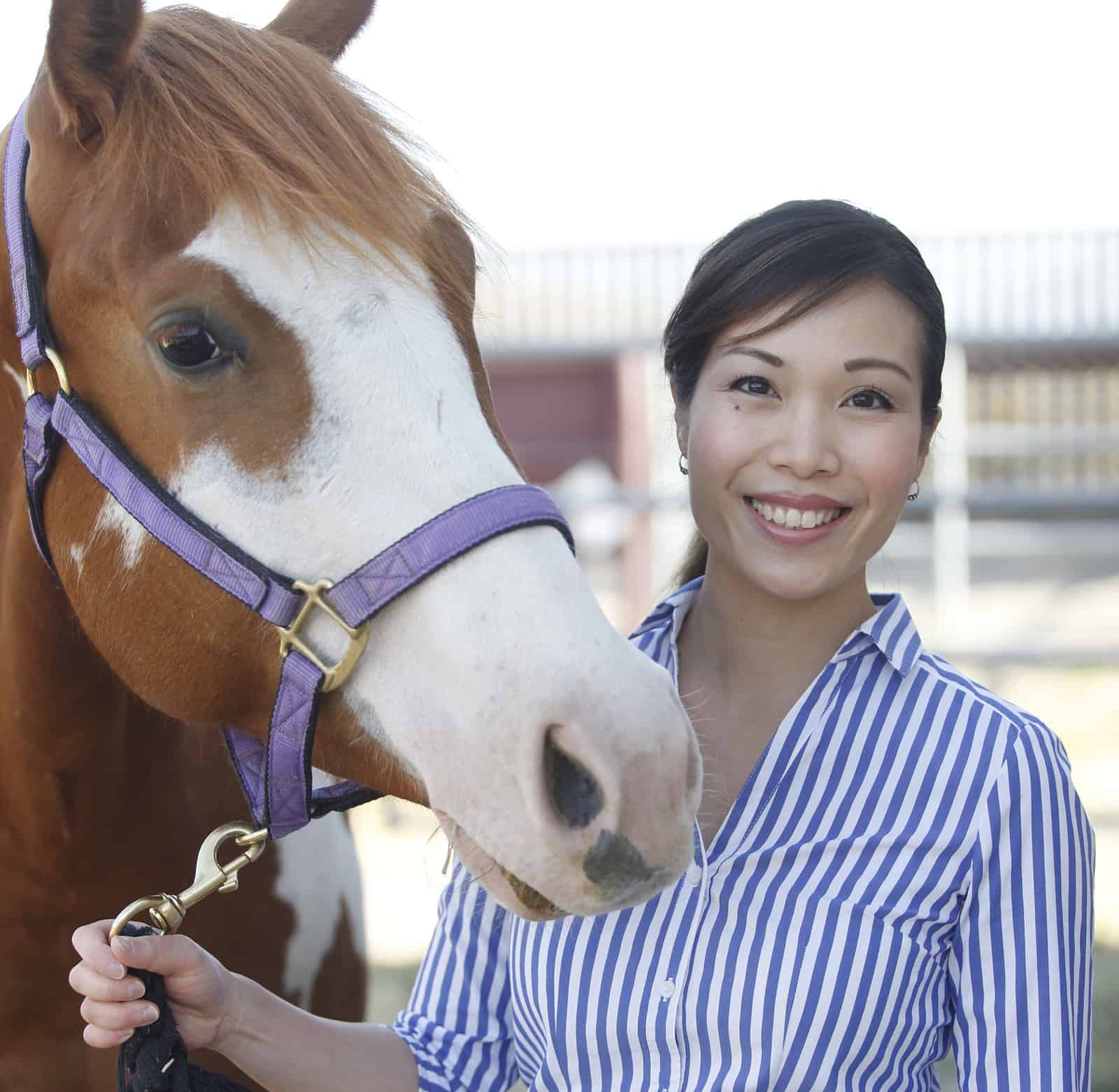Managing Senior Horses with Heaves

As our horses’ life expectancies extend beyond what we would have predicted 20 years ago, we expect similar longevity from their athletic careers. To help this happen, we must adjust our equine management practices. One of the most common performance-limiting conditions affecting geriatric horses that we can manage is asthma, previously known as recurrent airway obstruction (RAO, or heaves) an inflammatory lower airway disease.
The average age of onset of equine asthma is 9 years old, and approximately 12% of mature horses develop the condition. Veterinarians diagnose heaves in more than 50% of horses that present for respiratory evaluation. They typically pinpoint this disease using a case history and physical examination, but they face additional diagnostic challenges when assessing geriatric horses.
First, heaves tends to worsen over time. A horse easily managed in previous years with environmental approaches (e.g., turnout and soaked hay to reduce inhaled allergen exposure) might need medications as he ages. So be sure to have your veterinarian perform routine respiratory exams on your elderly (upwards of 20 years) asthma-affected horse.
Second, horses with heaves are more predisposed to secondary upper respiratory bacterial and viral infections. This fact, compounded with the suppressed immunity associated with equine Cushing’s disease (a hormonal condition affecting about 30% of aged horses), can exacerbate your asthma-affected horse’s respiratory signs. Examining exposure to horse traffic on/off the farm, blood work to check for white blood cell count spikes indicative of the horse fighting a pathogen, and frequent monitoring of your horse’s temperature can help a veterinarian determine whether it’s an infection or asthma that’s causing your horse’s clinical signs. If your horse’s infection status is still unclear, your veterinarian can perform a transtracheal wash to culture bacterial organisms and a bronchoalveolar lavage to confirm heaves.
Practitioners typically treat confirmed asthma using a combination of environmental management approaches, corticosteroids (most commonly fluticasone) to reduce lower airway inflammation, and bronchodilators (traditionally, clenbuterol and albuterol) to relieve airway constriction.
An important consideration when using corticosteroids in geriatric horses is the side effects, which include immune system suppression and, rarely, the hoof disease laminitis. These side effects overlap with some of the manifestations of Cushing’s. Your veterinarian might prefer to avoid prescribing systemic corticosteroids if your horse has been diagnosed with Cushing’s and instead suggest using inhalant medications, which are not associated with systemic side effects. Although more expensive, these medications are delivered directly to the target location—the lung—via a special device. As elderly horses’ clinical signs worsen over time, the veterinarian can switch bronchodilators from albuterol, that can remain effective for one to two hours, to similar drugs that can be effective for up to 8 hours.
Even if a heaves-affected horse experiences immediate improvement with medical intervention, you still need to manage his condition into the future. Along with environmental management, some horses might experience longer-term benefits and overall improved performance on a judicious maintenance program of long-term corticosteroids and bronchodilators. Inhalant treatment with bronchodilators 30 minutes prior to exercise can also help.
Prognosis depends greatly on the stage of disease at which your veterinarian diagnoses and begins treating heaves, but as long as you consistently limit your horse’s exposure to dust and allergens using rigorous management practices, it is usually excellent. However, the more long-standing the clinical signs, the more expensive and arduous the treatment can be. If a geriatric horse has battled chronic heaves for many years without treatment, the fibrosis (scarring) from airway remodeling in his lungs might be irreversible and, therefore, his treatment response might be limited.
While treating the geriatric horse for heaves presents some additional challenges, with careful attention to management and collaboration with your veterinarian, your elderly horse has a solid chance to continue his career, uninhibited by his respiratory afflictions.

Written by:
Jean-Yin Tan, DVM, Dipl. ACVIM
Related Articles
Stay on top of the most recent Horse Health news with












